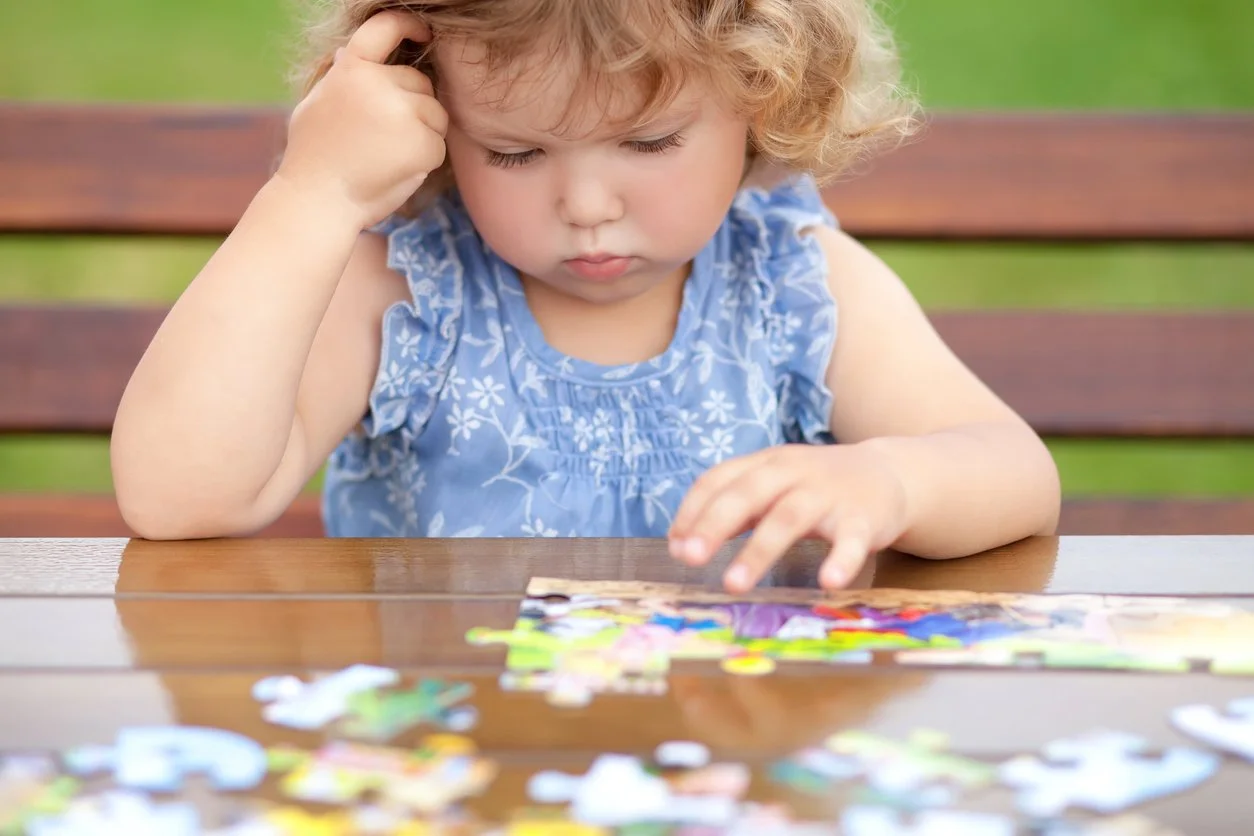15 Most Important Parenting Skills
Parenting is one of the most rewarding—and challenging—roles in life. While there’s no single “right” way to raise a child, research and real-world experience both point to a core set of parenting skills that make a lasting impact on a child’s development. These skills not only shape how kids behave and learn, but also influence their emotional well-being, relationships, and sense of self. According to a report from the CDC, children with engaged, supportive parents are more likely to do well in school and exhibit fewer behavioral issues. Whether you're a new parent or looking to improve your approach, mastering these foundational skills can help you raise confident, resilient, and emotionally healthy children.
1. Active Listening
Active listening means giving your child your full attention when they speak, showing that you value their thoughts and feelings. This skill fosters trust, encourages open communication, and helps kids feel seen and understood. Instead of jumping in with advice, parents should paraphrase, reflect emotions, and ask open-ended questions. For instance, if your child says, “I hate school,” you might respond, “It sounds like you’re having a tough time—want to tell me what happened today?” This creates space for your child to share without fear of judgment. Active listening doesn’t mean solving their problems—it’s about showing up and tuning in. Practicing this regularly helps your child develop emotional intelligence and self-expression.
2. Consistency
Children thrive on predictability, and consistent parenting helps create a secure environment. Consistency in rules, routines, and discipline allows kids to understand expectations and boundaries. For example, if bedtime is 8:00 PM, sticking to it daily—even on weekends—teaches children self-regulation and structure. When parents are inconsistent, it can lead to confusion, testing of boundaries, and insecurity. Being consistent doesn’t mean being rigid—it means following through with what you say. Whether it’s rewarding good behavior or enforcing consequences, reliability builds trust and respect.
3. Empathy
Empathy allows parents to understand and relate to their child's emotions from their perspective. It creates a safe emotional space where kids feel accepted and validated. For instance, if your child is upset about losing a toy, instead of brushing it off, you might say, “I know you loved that toy—losing it must feel really upsetting.” This teaches children that their feelings matter and equips them to be empathetic toward others. Practicing empathy helps children develop social awareness and emotional resilience. It also strengthens the parent-child bond, especially during moments of distress or conflict.
4. Patience
Patience is key in guiding children through their learning and development. Kids will test limits, repeat mistakes, and take time to master new skills—and parents need to be prepared for the long game. For example, a child learning to tie their shoes may need 10 attempts and lots of encouragement. A patient response might be, “Take your time—I’m proud of you for trying.” Reacting with frustration can discourage effort and create anxiety. Patience promotes a growth mindset and builds a child’s confidence over time. It also helps parents remain calm and supportive in high-stress situations.
5. Positive Reinforcement
Reinforcing good behavior encourages children to repeat it and builds a sense of accomplishment. Instead of focusing solely on mistakes, catch your child doing something right. For example, if your child shares a toy with a sibling, you might say, “That was so kind of you to share—thank you!” This teaches that positive behavior has meaningful rewards, like praise or extra privileges. Over time, children internalize these values and act accordingly even without recognition. Positive reinforcement is especially effective when it’s specific, timely, and sincere.
6. Setting Boundaries
Children need clear, firm boundaries to feel safe and understand expectations. Setting limits teaches self-discipline and helps children learn consequences. For instance, if a child throws a tantrum over screen time, a parent might say, “We agreed on 30 minutes. If you can’t turn it off calmly, we’ll need to skip it tomorrow.” Boundaries are most effective when enforced with calm authority—not anger or threats. Over time, kids begin to respect limits and make better choices on their own. Healthy boundaries also teach children to respect others’ space and needs.
7. Conflict Resolution
Conflict is inevitable, but parents who model healthy resolution teach children vital life skills. This involves staying calm, listening actively, and working toward a fair solution. For example, if siblings are fighting over a toy, a parent might say, “Let’s hear both sides and come up with a plan to share.” This helps children learn negotiation, empathy, and problem-solving. Avoiding blame and focusing on solutions prevents resentment. Over time, kids learn to manage conflicts independently and respectfully.
8. Flexibility
While routines are important, flexibility allows parents to adapt to unexpected challenges or changing needs. A rigid parenting style can lead to frustration, while flexibility fosters resilience and creativity. For example, if your child is unusually cranky after school, maybe homework can wait until after a snack or some outdoor play. Adapting in the moment shows that you’re tuned into your child’s current state and willing to meet them where they are. Flexibility teaches children that it’s okay to adjust plans when necessary. It also models emotional adaptability, a key skill for adulthood.
9. Emotional Regulation
Parents who manage their emotions effectively teach children how to handle their own. This means staying calm during tantrums, arguments, or stressful moments. For example, if your child spills juice on your laptop, taking a deep breath before reacting shows control. You might say, “I’m really upset right now, but let’s clean this up and talk later.” Modeling emotional regulation helps kids feel safe and learn that big feelings are manageable. It’s okay to acknowledge your emotions—what matters is how you respond to them.
10. Teaching Responsibility
Giving children age-appropriate responsibilities builds independence and confidence. This can be as simple as having your toddler put toys away or having a tween help with cooking dinner. For example, assigning a child to pack their own backpack the night before school teaches planning and accountability. Rather than fixing mistakes for them, guide them through the process and allow natural consequences when appropriate. Over time, kids feel more capable and take pride in their contributions. Responsibility also nurtures self-discipline and time management skills.
11. Encouraging Independence
Letting children try things on their own—even if they struggle—builds self-confidence. This means stepping back when appropriate and avoiding over-helping. For instance, letting a preschooler dress themselves, even if their outfit mismatches, teaches autonomy. When kids succeed on their own, they feel empowered. When they fail, they learn how to try again. Encouraging independence doesn’t mean being uninvolved—it means offering support while allowing space to grow.
12. Modeling Behavior
Children learn far more from what parents do than what they say. Modeling kindness, honesty, responsibility, and self-care teaches those values more effectively than lecturing. For example, saying “please” and “thank you” regularly or apologizing when you make a mistake shows your child how to behave. If you want your child to be respectful, show respect in your interactions—even during disagreements. Your example becomes their blueprint. Consistent modeling over time helps build strong character and habits in your child.
13. Time Management
Teaching time management helps children stay organized and reduces stress for the whole family. This includes creating routines, setting priorities, and managing screen time or homework. For instance, helping your child set a timer for 20 minutes of reading every evening instills a sense of routine. Over time, they begin to plan their own schedule and meet deadlines more independently. Parents who manage their own time well model this essential skill. Time management supports academic success, emotional regulation, and household harmony.
14. Problem-Solving
Teaching kids to solve problems rather than avoiding or escalating them is essential. Instead of giving your child all the answers, ask guiding questions. For example, if your child forgets their lunch, you might ask, “What can you do next time to remember?” Helping them think through options builds critical thinking. This approach creates resilient, resourceful kids who learn from mistakes. It also gives them confidence in their ability to tackle life’s challenges.
15. Unconditional Love
At the heart of effective parenting is unconditional love—accepting and supporting your child without conditions. This means showing love even when your child misbehaves, makes mistakes, or fails. For instance, after a meltdown, you might say, “I didn’t like how you acted, but I still love you no matter what.” Children who feel unconditionally loved develop stronger self-worth and are less likely to seek validation from risky behavior. It creates a foundation of security that supports all other parenting efforts. Love should never be earned—it should be freely given.
Understanding Parenting Styles
After learning about the most important parenting skills, it’s helpful to understand how these skills often align with broader parenting styles. Parenting styles are general approaches that shape how parents interact with their children and enforce rules and expectations. Researchers typically categorize parenting into four main styles:
Authoritative Parenting
Authoritative parents balance high expectations with warmth and support. They set clear rules but are responsive to their child’s needs and opinions. This style is often linked to the most positive child outcomes, such as high self-esteem, strong academic performance, and emotional resilience.
Example: A parent who enforces a consistent bedtime but explains why it’s important and listens to their child’s concerns.
Authoritarian Parenting
Authoritarian parents are strict, expect obedience, and often use punishment rather than positive reinforcement. While children may be well-behaved, they can struggle with low self-esteem, anxiety, or lack of independence.
Example: A parent who enforces rules without explanation and expects immediate compliance, regardless of context.
Permissive Parenting
Permissive parents are nurturing and accepting but often lack firm boundaries or consistent discipline. Their children may feel loved but often struggle with self-regulation and authority outside the home.
Example: A parent who lets their child skip homework or stay up late with little to no consequences.
Uninvolved (Neglectful) Parenting
Uninvolved parents offer limited guidance, nurturing, or attention. This style is often associated with poor developmental outcomes, including low academic performance and difficulty forming healthy relationships.
Example: A parent who is emotionally distant, rarely engages in their child’s activities, or overlooks basic needs.
While no parent fits neatly into one category all the time, being aware of your dominant style can help you reflect on your approach and make adjustments where needed. Combining the right parenting skills with a warm yet structured style—like authoritative parenting—can create the ideal environment for your child’s growth and well-being.
No parent is perfect—and you don’t need to be. But by focusing on these 15 essential parenting skills, you give your child the tools they need to grow into a capable, kind, and confident individual. From listening actively and setting boundaries to modeling behavior and offering unconditional love, every skill you practice builds trust and shapes your child’s future. Parenting is a lifelong learning journey, and the most important thing is showing up with intention, patience, and love. Even small, consistent changes can have a big impact. Remember: it’s not about having all the answers—it’s about being present, engaged, and willing to grow alongside your child.
Related Blog posts
The Starglow Parenting Weekly
Your shortcut to purposeful parenting.
Join thousands of thoughtful parents who get our weekly roundup of tips on screen time, mindful discipline, and finding balance—delivered every Sunday morning.







